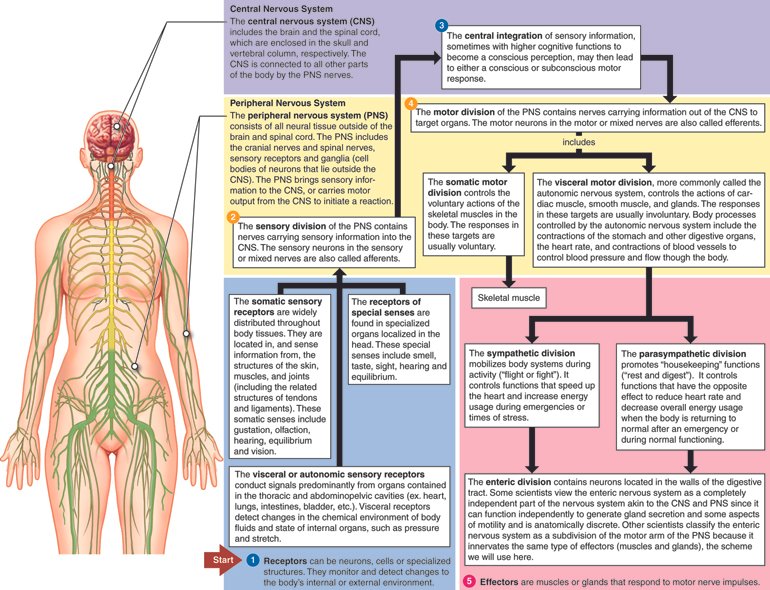As our furry friends age, their nutritional needs change, requiring us to modify their diets to ensure their overall well-being. If you’re a pet parent of a senior dog, you might be wondering what the best dog training foods are to keep them fit and healthy. Well, worry no more! In this article, we will dive into the world of canine nutrition, exploring a selection of delectable and nutritious options that cater specifically to the training needs of older dogs. So, grab a treat and let’s nourish our loyal companions with the finest culinary delights tailored just for them.
Table of Contents
- Training Foods for Older Dogs: Nourishment and Vitality Combined
- Tailored Nutrition for Aging Pooches: Meeting Specific Needs
- Unveiling the Top Specially Formulated Dog Foods for Senior Canines
- Boost Cognitive Function and Joint Health with Targeted Food Options
- Optimize Training Success with Nutrient-Rich Meals for Mature Dogs
- Q&A
- Future Outlook

Training Foods for Older Dogs: Nourishment and Vitality Combined
As our furry friends grow older, their dietary needs change. Just like humans, older dogs require a balanced and nourishing diet to maintain their vitality and overall well-being. With the right training foods, you can ensure that your senior dog stays healthy, active, and happy.
When selecting training foods for older dogs, it’s crucial to consider their specific nutritional requirements. Here are some essential elements to include in their diet:
- Protein: High-quality protein sources, such as lean meat and fish, are essential for maintaining your older dog’s muscle mass and supporting their immune system. Look for dog foods that have protein listed as the main ingredient.
- Healthy Fats: Incorporating healthy fats, like omega-3 fatty acids, can benefit your dog’s coat, joints, and cognitive function. Opt for foods with flaxseed or fish oil as they are rich in these beneficial fats.
- Fiber: A moderate amount of fiber in your dog’s diet helps regulate their digestion and ensures proper bowel movements. Foods with whole grains, vegetables, and fruits are good sources of fiber.
- Joint Support: Older dogs may experience joint issues, so it’s important to choose foods that contain ingredients such as glucosamine and chondroitin sulfate, which support joint health and mobility.
Additionally, it’s advisable to check with your veterinarian to personalize your older dog’s diet based on their specific needs. Remember, proper nutrition plays a significant role in enhancing their vitality, longevity, and overall quality of life. Slowly introduce new training foods to their diet and observe how your dog responds to ensure a smooth transition to their new nourishing regimen.

Tailored Nutrition for Aging Pooches: Meeting Specific Needs
As our furry friends age, their nutritional needs change. Just like humans, older dogs require a balanced diet that supports their specific needs and helps them stay healthy and happy. Tailored nutrition plays a crucial role in ensuring that aging pooches maintain a good quality of life.
Meeting Specific Needs:
- Joint Health: Age-related conditions like arthritis and joint stiffness are common in older dogs. Including ingredients rich in glucosamine and chondroitin sulfate in their diet can help promote joint health and mobility.
- Weight Management: Aging can contribute to a slower metabolism, making weight gain more likely. A tailored diet should include appropriate portions and lower calorie content to help maintain a healthy weight.
- Digestive System: Older dogs may experience digestive issues such as decreased nutrient absorption or constipation. Including probiotics and easily digestible ingredients in their food can improve their digestive health.
- Immune Support: Aging dogs may have a weakened immune system, making them more susceptible to illnesses. Foods rich in antioxidants, omega-3 fatty acids, and vitamins can help boost their immune response.
By providing tailored nutrition to our aging companions, we can ensure they receive the essential nutrients they need to thrive during their golden years. Consulting with a veterinarian to create a customized diet plan can help address specific concerns and optimize their overall well-being.

Unveiling the Top Specially Formulated Dog Foods for Senior Canines
As our canine companions age, their nutritional needs change. Just like humans, senior dogs require a balanced diet to stay healthy and vibrant. That’s why we’ve compiled a list of the top specially formulated dog foods that cater to the unique requirements of senior canines. These carefully crafted recipes prioritize ingredients that support joint health, promote cognitive function, and maintain a healthy weight.
- Joint Support: Senior dogs often experience joint stiffness and arthritis. Look for dog foods enriched with glucosamine and chondroitin, known to reduce inflammation and improve mobility.
- Cognitive Function: Aging dogs may experience decline in cognitive function. Opt for dog foods containing omega-3 fatty acids and antioxidants, renowned for supporting brain health and boosting memory.
- Weight Management: Maintaining a healthy weight is crucial for senior dogs to prevent strain on their joints and organs. Choose dog foods that are lower in fat and calories, but still packed with essential nutrients.
Remember, when selecting the right dog food for your senior furry friend, it’s always recommended to consult with your veterinarian. They can provide valuable guidance based on your dog’s specific needs and health conditions. Help your senior canine companion thrive by choosing one of these specially formulated dog foods designed to keep them happy and healthy in their golden years.

Boost Cognitive Function and Joint Health with Targeted Food Options
Boost your cognitive function and promote healthy joints by incorporating specific food options into your diet. By consuming these nutrient-rich foods, you can enhance your brain power while also supporting joint health.
To boost your cognitive function, consider including foods that are rich in omega-3 fatty acids. These healthy fats can help improve memory and focus. Salmon, flaxseeds, and walnuts are excellent sources of omega-3s. Additionally, incorporating leafy green vegetables such as spinach and kale, which are packed with antioxidants, can support brain health and improve cognitive function.
In addition to promoting cognitive function, it is crucial to care for your joints. Including foods rich in collagen, like bone broth or collagen peptides, can help maintain joint health and reduce the risk of joint-related discomfort. Incorporating sources of vitamin C, such as oranges, strawberries, and bell peppers, can also aid in the production of collagen and support joint mobility.
-
Boost cognitive function with:
- Omega-3 fatty acids from salmon, flaxseeds, and walnuts
- Antioxidant-rich leafy green vegetables like spinach and kale
-
Promote joint health with:
- Collagen-rich foods such as bone broth or collagen peptides
- Vitamin C sources like oranges, strawberries, and bell peppers to support collagen production
Remember, your diet plays a significant role in maintaining both cognitive function and joint health. By incorporating these targeted food options, you can nourish your body and support your well-being from within.
Optimize Training Success with Nutrient-Rich Meals for Mature Dogs
When it comes to training mature dogs, providing nutrient-rich meals is key to optimizing their success. As our furry companions age, their nutritional needs change, making it essential to focus on balanced and wholesome meals. By offering the right nutrients, you can support their overall health, cognitive function, and physical strength, enabling them to excel in their training sessions.
Here are some tips to help you create nutrient-rich meals for your mature dog:
- Quality Protein: Include lean sources of protein such as chicken, turkey, or fish. These provide the necessary amino acids for muscle development and repair.
- Healthy Fats: Incorporate omega-3 fatty acids found in fish oil or flaxseed oil. These support brain function and reduce inflammation, promoting joint health and mobility.
- Fiber-Rich Vegetables: Add vegetables like carrots, peas, and green beans to provide essential vitamins, minerals, and fiber. These help with digestion and maintaining a healthy weight.
- Complex Carbohydrates: Opt for whole grains like brown rice or quinoa that provide slow-release energy, keeping your dog sustained during training sessions.
Remember, it’s crucial to consult with your veterinarian to determine the specific dietary requirements of your mature dog. They can provide guidance on portion sizes and suitable additions to ensure your furry friend receives a complete and balanced diet. With nutrient-rich meals, your mature dog will have the fuel they need to succeed in their training endeavors!
Q&A
Q: Can you recommend any dog training foods specifically designed for senior dogs?
A: Yes, there are several excellent options available. Some popular choices include formulas that are rich in omega-3 fatty acids and glucosamine, which can help support joint health in older dogs. Additionally, foods with added antioxidants and vitamins can help support their overall well-being.
Q: What are the benefits of using dog training foods for senior dogs?
A: Training foods designed for senior dogs offer several advantages. They are often formulated with ingredients tailored to meet the nutritional needs of aging dogs, including higher levels of protein to maintain muscle mass and lower levels of calories to prevent weight gain. These foods can also support cognitive function and promote healthy digestion.
Q: Are there any specific ingredients I should look for in dog training foods for senior dogs?
A: When choosing dog training foods for senior dogs, look for ingredients like lean proteins (e.g., chicken or fish), whole grains, fruits, and vegetables. Additionally, supplements like chondroitin and omega-3 fatty acids can be beneficial for joint health. Avoid artificial preservatives, colors, and flavors.
Q: How should I introduce new dog training foods to my senior dog?
A: It’s best to introduce new foods gradually by mixing them with your dog’s current food over a week. Start with a small amount of the new training food and gradually increase the portion size while reducing the amount of the old food. This will allow your senior dog’s digestive system to adjust to the new diet.
Q: Can I make homemade training treats for my senior dog instead of buying commercial foods?
A: Yes, you can make homemade training treats for your senior dog. However, it’s crucial to ensure they meet all their nutritional needs. Consult with your veterinarian to create balanced recipes that include lean proteins, whole grains, and vegetables. Remember to avoid using seasonings, oils, or ingredients toxic to dogs, like onions or garlic.
Q: How often should I feed my senior dog with training foods?
A: The frequency of feedings depends on your dog’s specific needs and activity level. Most senior dogs do well with two meals a day, but smaller, more frequent meals may be recommended for some. Consulting your veterinarian will help determine the ideal feeding schedule for your senior dog.
Future Outlook
As we conclude this delightful exploration into the world of dog training foods for our beloved senior companions, we hope that you have found our suggestions both nutritious and inspiring. Remember, just like humans, our senior dogs deserve the very best when it comes to their physical health and well-being.
Whether you choose to enhance their golden years with the tantalizing flavors of lean proteins, the crunch of nutrient-rich vegetables, or the comfort of wholesome grains, always keep in mind the specific dietary needs and preferences of your wise and distinguished furry friends.
As our loyal companions age gracefully, their bodies may undergo changes, but their appetite for love, care, and delectable meals remains unwavering. So, with the thoughtful selection of dog training foods catered to their individual needs, we can continue to nourish their spirits and bodies, helping them lead fulfilling and joyful lives in their twilight years.
Remember, the key to healthy and successful senior dog training is not only in the power of food but also in the strength of our bonds. Cherish the moments you spend with your senior dog, and let the nourishment of their body be a reflection of the love you share. They have been our loyal companions, our protectors, and our confidants, and it is our duty to ensure their well-deserved comfort and happiness.
May these recipes and suggestions ignite a fire in your culinary imagination, inspiring you to explore the vast world of dog training foods for your precious furry seniors. Embrace the opportunity to embark on this delightful culinary journey, as it is a true testament to the deep bond we share with our four-legged family members.
So, without further ado, let the feast begin, as we embrace the privilege of nourishing our wise and sophisticated senior dogs, bringing them the joy, vitality, and health they so genuinely deserve. Together, let us celebrate their remarkable journey alongside us, making every mealtime a feast fit for a furry king or queen.
As an affiliate, my content may feature links to products I personally use and recommend. By taking action, like subscribing or making a purchase, you’ll be supporting my work and fueling my taco cravings at the same time. Win-win, right?
Want to read more? Check out our Affiliate Disclosure page.